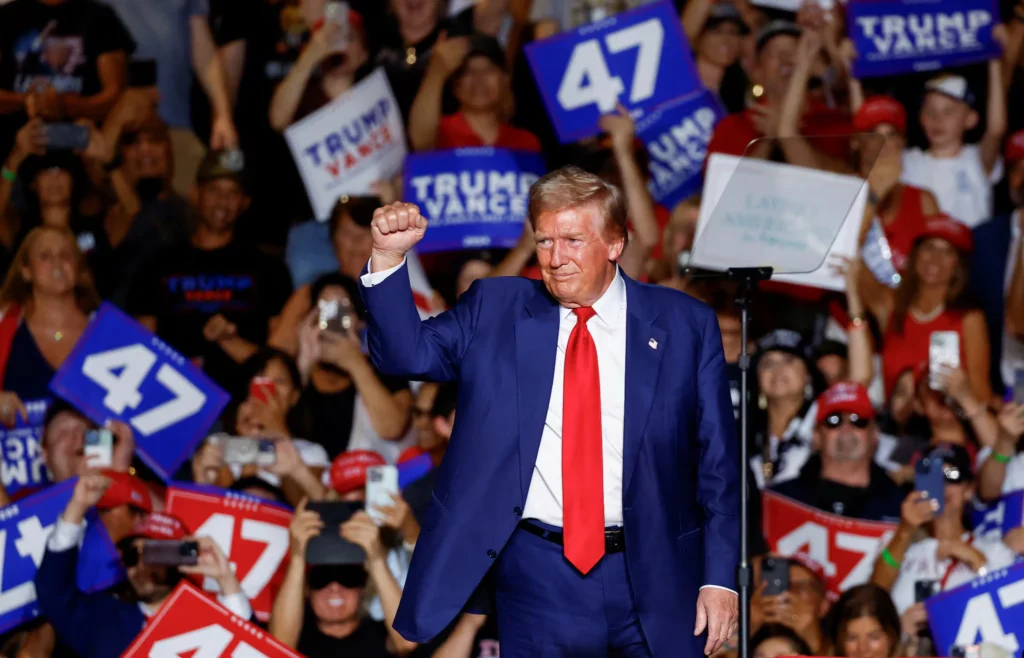10 February 2025
In a argued move, the Trump order CFPB to stop most operations. As a result, the order halts ongoing investigations, taking action on rules, and managing rules. This decision, announced on February 10, 2025, also shuts the agency’s headquarters for five days, from February 10 to 14. Consequently, the move has sparked outrage among consumer rights advocates and Democratic lawmakers. However, traditional and business groups, on the other hand, support it.
This decision aligns with efforts to cut government rules. Specifically, the focus is on regulations affecting financial institutions. Critics, however, argue that weakening the CFPB puts consumers at risk. They fear that, as a result, financial exploitation, fraud, and unfair loans will grow.
Background of CFPB
The CFPB was created in 2010 under the Dodd-Frank Act. This act was a response to the 2008 financial crisis. The agency oversees financial institutions and enforces consumer protection laws. It ensures fair treatment of borrowers. Over time, the CFPB has investigated and fined major banks. The agency has recovered billions of dollars for consumers.
Despite its success, the CFPB faces constant attacks from Republicans and business leaders. They argue the agency imposes too many regulations on financial companies. Critics claim it overreaches, is not efficient, and harms economic growth. Since taking office, President Donald Trump has taken steps to weaken the CFPB. The Trump order CFPB to halt operations is the most aggressive effort yet.
Trump order CFPB to halt operations, with immediate impact
Russell Vought, acting director of the OMB, issued a directive. He instructed the CFPB to pause all rule-making and investigations. As a result, enforcement actions have also been stopped. Additionally, employees and contractors must work remotely. The agency’s headquarters will stay closed for five days.
Meanwhile, the CFPB’s website showed a “404 error,” hinting at service disruptions. This raises concerns about how ongoing consumer complaints and financial disputes will be handled. Experts worry that lenders and financial institutions may take advantage of this situation. Consequently, they fear unfair practices may grow during the agency’s inactivity. The Trump order CFPB to halt operations has sparked additional concerns about financial oversight.
Political Reactions
Senator Elizabeth Warren, a key figure in the CFPB’s creation, criticized the move. She said, “This is an attack on consumer rights.” Furthermore, Warren added, “The Trump order CFPB to halt operations puts Wall Street ahead of working Americans.”
Representative Maxine Waters, ranking Democrat on the House Financial Services Committee, shared similar concerns. She argued the administration is “removing protections for consumers to help big companies.” In addition, Waters continued, “The Trump order CFPB to halt threatens consumer safety and fairness.”
On the other hand, conservative lawmakers and business groups welcomed the decision. Many Republicans believe the CFPB oversteps its authority and harms small businesses. Some GOP leaders even called for the agency’s elimination. They argue that the Federal Reserve and FTC can handle consumer protection. Therefore, they think the Trump order CFPB to halt will reduce government interference.
Legal Challenges and Musk’s Involvement
The suspension of the CFPB’s operations has already led to legal battles. The National Treasury Employees Union (NTEU) has filed a lawsuit. They argue the administration does not have the power to shut down the agency. The lawsuit claims this decision violates the U.S. Constitution. It also weakens consumer protection laws that safeguard Americans.
Adding to the controversy, reports suggest billionaire Elon Musk has been granted access to the CFPB’s internal systems. Musk, known for his work with Trump’s Department of Government Efficiency (DOGE), has pushed to reduce government oversight. He wants to eliminate agencies like the CFPB. Critics argue that Musk’s involvement presents a major conflict of interest. His companies could benefit greatly if financial regulations are reduced. This raises concerns about fairness in government decision-making.
Broader Implications
Senator Elizabeth Warren, a key figure in the CFPB’s creation, opposed the Trump order. She called it “a clear harm to consumer rights,” putting Wall Street ahead of working Americans. Furthermore, Representative Maxine Waters agreed, saying the shutdown harms protections for consumers. She argued it helps big companies and threatens fairness.
On the other hand, conservative lawmakers and business groups welcomed the decision. They argue the CFPB overreached and hurt small businesses. In addition, some GOP leaders even call for eliminating the agency. They believe regulators like the Federal Reserve and FTC can protect consumers. Therefore, they see the Trump order CFPB as reducing government interference.
The results are serious. If the CFPB stays inactive, consumer protection cases could be dropped. Moreover, companies under investigation may avoid penalties for fraud. Experts warn this could set a dangerous example. Consequently, other agencies, like the SEC and FTC, may face similar cuts. This could weaken financial oversight and increase instability.
Conclusion
The Trump order CFPB to marks a major shift in U.S. regulation. Supporters argue it reduces government overreach and helps business growth. Opponents warn it harms consumer rights and financial stability.
As legal battles and political debates continue, the CFPB’s future is uncertain. The agency may be brought back, removed, or changed. Court rulings and legislative actions will decide its fate. One thing is clear: the Trump order has restarted the debate over government’s role in financial regulation. This will have long-term impact on American consumers and businesses.



